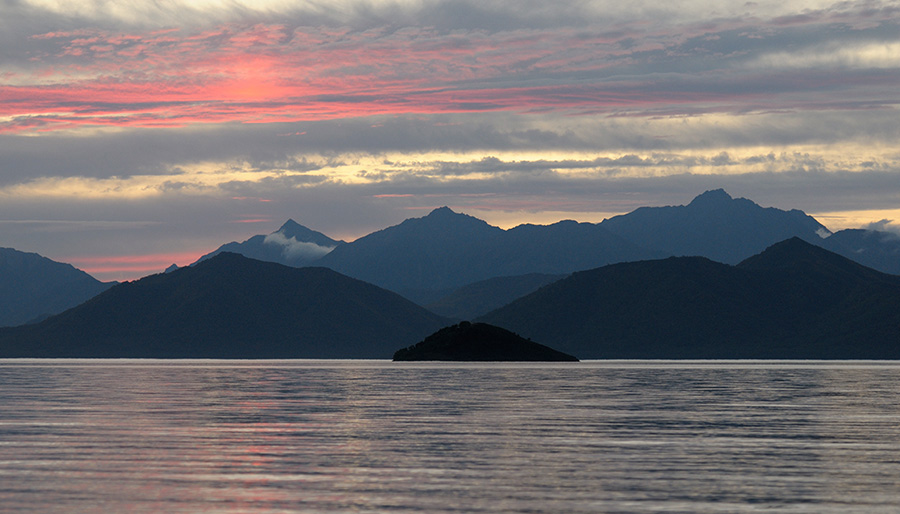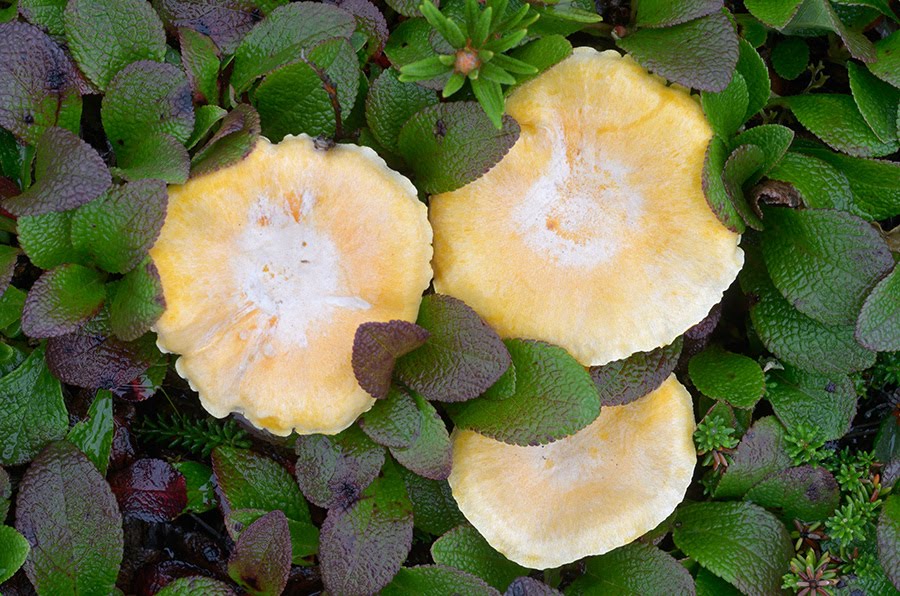For the past several weeks I was trying to get new photos of our friends-foxes, but with not much luck. The lush summer grass is always on the way. It is also problematic for foxes themselves to move through such abundant vegetation, so they often make use of bear trails.
For example, my female fox neighbor
Alisa is using the bear beaten tracks that intersect near my cabin. She passes my window several times per day with prey in her teeth – that is the only moment when I can catch her on camera!!
Sometimes she is carrying birds, other times – ground squirrels, but most frequently - it is fish! Alisa has her own approach to handling fish – for her, the best fish is the fish without a head. As soon as she gets hold of salmon, dead or alive, Alisa eats his head and only then takes the rest to her cubs. In the end of July Alisa’s children left their first burrow, and now they roam from one temporary fox hole to another. I only see four out of original six cubs, the other two disappeared.
Alisa is a single mom now. Cosmo has lost all his interest in raising kids by the end of July, when the weather finally got hot by Kamchatka standards. But let’s not blame him too much for that, it is how foxes are. Now he is living all by himself, his fur has completely shed and he started to fatten for winter. It seems like the cubs are a burden for Alisa as well: as soon as she brings the prey to their hiding, she hurries to run away from them. Sometimes she takes rest from her kids in our backyard, where the grass is trimmed and therefore, there are fewer mosquitoes.
Mrs. Evildoer, on the other hand, was never easy to photograph, she is way too cautious – I don’t have a single good picture of her. But she is a great mother! All eight cubs, that survived
a bear attack in the beginning of July, are doing well now. They are occupying three borrows at once now, the distance between the farthest is close to half a mile. Currently the instinct of digging is activated in all the cubs (Alisa’s and Mrs. Evildoer’s). They are broadening and deepening their burrows, spending most of their time digging.
Foxes do not have any food-related problems now: all the rivers and river banks are full of fish with more and more salmon coming upstream for spawning. The fox cubs sometimes pick up the fish themselves, but mostly for playing.
As it turns out, juvenile foxes are much more scared of humans than adults. I observed the same behavior among bear cubs as well – they would always be first to panic when a human approach. Probably the animal cubs have strong inherent fear of people. Only as they grow and only if they grow in the nature reserve, they learn that humans do not pose any danger and it is possible to peacefully live side by side.
 This is how the largest of junior Evildoers look nowdays: he is very displeased by the fact that a human came up so close to his home.
This is how the largest of junior Evildoers look nowdays: he is very displeased by the fact that a human came up so close to his home.
Originally posted
at Доброе утро из Кроноцкого заповедника!















